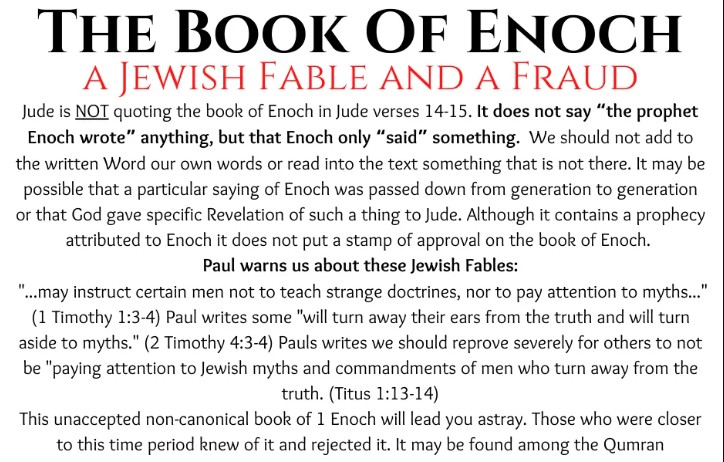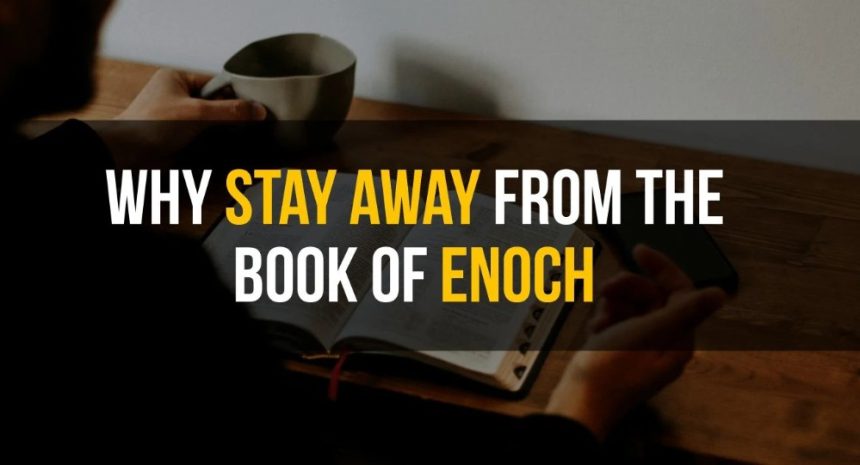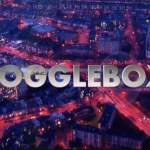Why Stay Away from the Book of Enoch—this question is at the heart of an ongoing debate that intertwines ancient history, theology, and modern scepticism. Across the UK, scholars, religious leaders, and curious minds are delving into the layers of this enigmatic text, raising questions about its authenticity, its potential dangers, and its impact on modern thought.
In this detailed post, we explore every facet of the Book of Enoch, offering a comprehensive analysis designed to inform and engage our UK audience.
What Is the Real Story Behind the Book of Enoch?
The Book of Enoch is not just another ancient manuscript; it is a window into the complex world of early religious thought and apocalyptic literature. Its mysterious origins and unorthodox content have fuelled debates for centuries.
Historical Origins:
-
- Written between the 3rd century BCE and the 1st century CE, the text is believed to have roots in early Jewish traditions.
- It combines mythological narratives with visionary experiences, setting it apart from mainstream biblical texts.
Literary and Theological Impact:

-
- Offers alternative accounts of angelic hierarchies, the fall of angels, and divine retribution.
- Has influenced not only religious thought but also literature, art, and even modern cinema.
Modern Relevance:
-
- Today, the Book of Enoch is a catalyst for discussions on how ancient wisdom is interpreted in a digital age.
- Its themes resonate with contemporary issues such as the interpretation of historical texts, the spread of misinformation, and the clash between established doctrines and alternative spiritualities.
Why Stay Away from the Book of Enoch?
Using the keyword as a standalone subheading reinforces the central inquiry and challenges readers to examine the potential pitfalls of embracing this text without scrutiny.
Authenticity Concerns:
-
- Experts remain divided on whether the Book of Enoch represents historical fact or is a collection of allegorical myths designed to convey moral and spiritual lessons.
- Its disputed origins raise the issue of reliability—can a text with such contested roots be trusted?
Theological Discrepancies:
-
- The book’s depiction of divine beings, celestial hierarchies, and apocalyptic events starkly contrasts with traditional biblical narratives.
- Many religious leaders caution that their radical interpretations might lead to theological confusion or even misguidance.
Societal and Cultural Implications:
-
- In an era of rapid information exchange, sensationalized interpretations of ancient texts can contribute to societal unrest and fuel fringe ideologies.
- The book’s themes of divine judgment and cosmic upheaval are particularly potent in a time when many feel the weight of modern uncertainties.
How Does the Book of Enoch Challenge Modern Beliefs?
This question-based subheading invites a deeper exploration of the text’s influence on today’s spiritual landscape:
Historical Scepticism vs. Modern Curiosity:

-
- Traditional academia often regards the Book of Enoch as pseudepigraphal, a collection of texts that lack historical verifiability.
- However, a growing number of alternative scholars and spiritual communities view the text as a reservoir of forgotten wisdom, inviting a re-evaluation of accepted religious history.
Impact on Contemporary Spirituality:
-
- The book’s vivid depictions of celestial battles and divine mysteries have inspired modern spiritual movements that seek to redefine the boundaries of faith.
- It raises pertinent questions:
- Can ancient allegories be reconciled with modern scientific understanding?
- Do these apocalyptic visions offer genuine warnings for today’s world?
Bridging the Gap Between Tradition and Innovation:
-
- The controversial nature of the Book of Enoch forces both believers and sceptics to question long-held assumptions about sacred texts.
- It encourages an ongoing dialogue about the nature of truth, the reliability of ancient narratives, and the relevance of myth in a rational, modern society.
What Are the Expert and Public Opinions?
Below is a detailed table that outlines current perspectives on the Book of Enoch from both scholarly circles and the public:
| Aspect | Scholarly Perspective | Public Perception | Current Trends |
| Authenticity | Considered a blend of myth and allegory, reliability is debated | Divided: Some regard it as a factual relic, others dismiss it as a myth | Continuous re-evaluation in academic circles |
| Theological Impact | Seen as challenging canonical doctrine, raises complex theological questions. | Viewed with both intrigue and suspicion by modern readers | Increased debates in religious forums and podcasts |
| Cultural Significance | Provides insight into early apocalyptic visions and ancient worldviews | Considered mysterious and provocative, inspiring curiosity | Featured in documentaries and online historical series |
| Modern Relevance | Offers alternative perspectives on divine justice and cosmic order | Sparks interest among those exploring alternative spirituality | Gaining traction in online communities and spiritual debates |
What Should Readers Consider Before Delving In?

Before immersing themselves in the Book of Enoch, readers are advised to approach it with a critical mindset. Here are some key considerations:
Understand the Historical Context:
-
- Familiarise yourself with the cultural, political, and religious landscape of the ancient Near East.
- Consider how historical circumstances may have influenced the text’s creation and later interpretations.
Maintain a Critical Perspective:
-
- Question whether the text should be read as literal history or as a symbolic narrative.
- Compare its content with canonical scriptures and other historical documents to form a well-rounded view.
Weigh the Risks of Misinformation:
-
- Recognise that sensationalist interpretations can distort the original message.
- Seek information from multiple reliable sources to avoid falling prey to biased or misleading claims.
Engage in Informed Debate:
-
- Join discussions and forums where diverse perspectives are shared, particularly those hosted by reputable academic and religious institutions.
- Use these platforms to ask questions and challenge your assumptions about ancient texts and modern spirituality.
Can Ancient Wisdom and Modern Scepticism Coexist?
In a world where digital media often simplifies complex narratives, the question arises: Can we truly appreciate the depth of the Book of Enoch while remaining skeptical of its origins? This intriguing query serves as a springboard for broader discussions about the intersection of ancient wisdom and contemporary critical thought.
Balancing Faith and Reason:
-
- While the text offers profound insights into early spiritual beliefs, its authenticity and allegorical nature must be carefully scrutinised.
- Embracing the text without a critical framework may lead to oversimplified or even dangerous interpretations.
Learning from the Past:
-
- The Book of Enoch challenges modern readers to re-examine historical narratives and question established doctrines.
- It is a reminder that the search for truth often involves navigating between reverence for ancient wisdom and the need for critical, evidence-based analysis.
Practical Implications for Today:
-
- How do we integrate the lessons of the past with the demands of modern life?
- Can we allow ancient texts to inform our present without succumbing to the pitfalls of uncritical acceptance?
What Can We Learn from the Book of Enoch in the 21st Century?
The exploration of the Book of Enoch is not merely an academic exercise—it has real-world implications for how we view spirituality, history, and our collective future.
Insight into Early Spirituality:
-
- The text provides a rare glimpse into the beliefs and fears of ancient societies.
- It underscores the human quest for understanding the cosmos, the divine, and the nature of good and evil.
Critical Examination of Sacred Narratives:
-
- Encourages a more nuanced view of what constitutes an authoritative religious text.
- Highlights the importance of questioning and verifying sources, particularly in an age dominated by digital misinformation.
Dialogue Between Different Worldviews:
-
- Serves as a bridge between traditional religious interpretations and modern, secular critiques.
- Fosters a healthy dialogue that respects historical context while encouraging innovative thinking.
Implications for Contemporary Spirituality:
-
- The themes explored in the Book of Enoch—divine judgment, cosmic order, and the interplay between light and darkness—resonate with many modern spiritual quests.
- Its lessons can inspire individuals to explore new dimensions of personal belief while remaining anchored in critical inquiry.
Conclusion: Navigating the Enigma with Caution and Curiosity
In asking “Why Stay Away from the Book of Enoch?”, we invite readers to embark on a journey that blends historical inquiry, theological debate, and modern scepticism. For UK audiences, this discussion is particularly resonant as it encourages a balanced view—one that respects the depth of ancient wisdom while acknowledging the need for critical analysis in today’s information-driven world.
By engaging with the Book of Enoch thoughtfully, you can appreciate its historical significance without falling prey to unverified claims or sensationalist interpretations. Whether you are a scholar, a spiritual seeker, or simply curious about the hidden truths of our past, the key is to explore with both passion and prudence.
Stay informed, ask challenging questions, and continue the conversation—because understanding the past is the first step to shaping a more enlightened future.
FAQs: Your Burning Questions Answered
What is the Book of Enoch?
An ancient text with apocalyptic visions and angelic narratives, separate from the canonical Bible.
Why does some advice caution?
Due to disputed authenticity and radical theological content that may mislead modern readers.
How does it affect modern spirituality?
It challenges traditional beliefs and inspires alternative spiritual interpretations.
Is it worth studying today?
Yes, for historical insight and critical discussion—but approach it with a balanced perspective.






